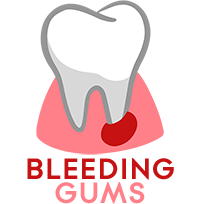
Oral cancer is a potentially nasty condition affecting the mouth. It is perfectly treatable if found in its earliest stages and survival rates are fairly high but the disease is often fatal. Dentists are trained to spot signs of oral cancer so you should allow your mouth to be examined by trained professionals every six months in case you are developing the condition.
Bleeding gums can be a sign that you have oral cancer. Any swellings in the mouth or discoloured patches that have become red or rusty might also be a signal. You might find that eating and drinking becomes painful as your gums take on greater sensitivity. These indicators can be accompanied by non-dental symptoms such as sudden weight loss.
Those at the highest risk of developing oral cancer are people who smoke tobacco and drink alcohol. Men are twice as likely to develop the disease as women. You ought to be vigilant about the signs of oral cancer even if you are not in one of these high risk groups as a quarter of patients do not fall into the above categories of smokers, alcohol drinkers or men.
You can look out for signs of the condition at home when you are brushing or by examining your mouth in the mirror and feeling for swellings with your finger. Dentists are well trained to spot these symptoms too and the risk of oral cancer should act as another incentive to regularly visit your surgery for an examination. If you notice bleeding from your gums, swelling or discoloured patches in the mouth or greater sensitivity while eating, you should make an appointment with your dentist as soon as possible, rather than wait for your next six month check up.
